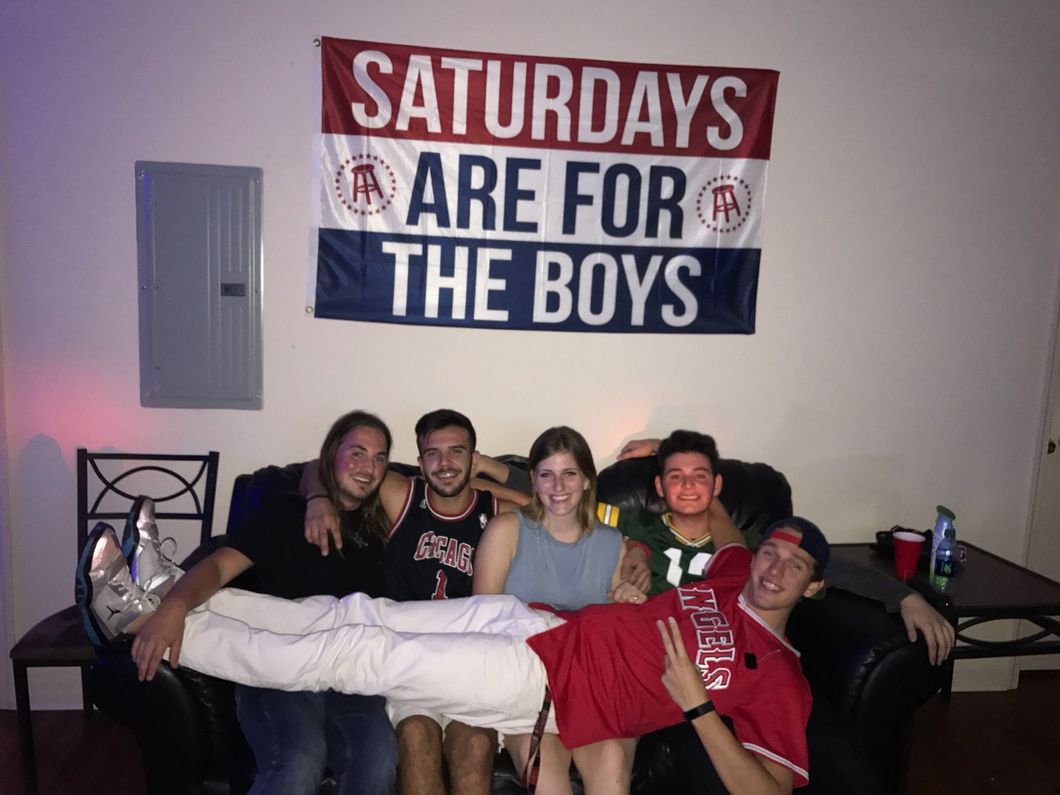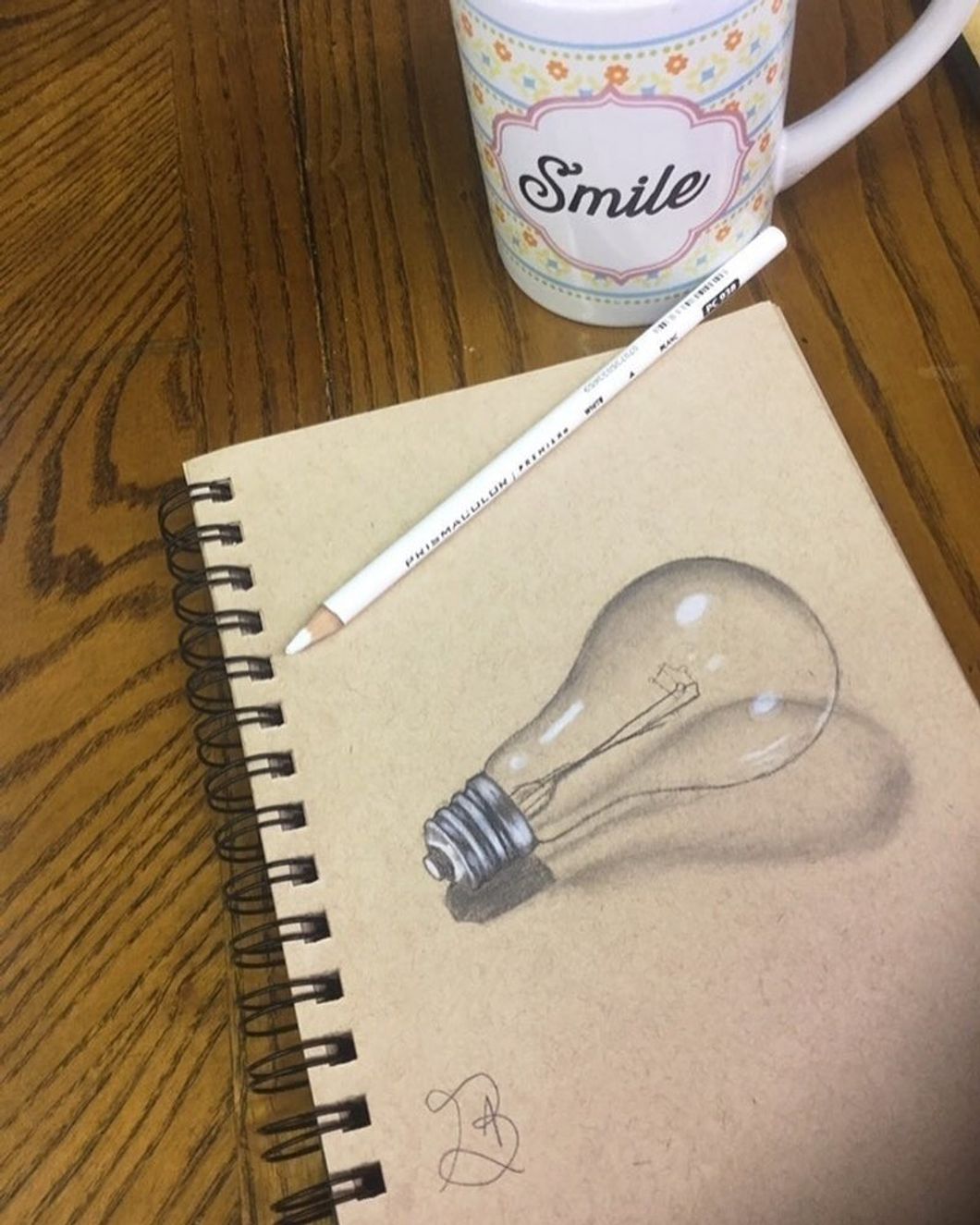#MeToo Has Ravaged Our Industries, But Let's Not Let It Destroy The Integrity Of The Writing Community
Not separating an artist from their work is different when translated into the writing community: Ideas are inherently separate.
This article is a response to the New York Times' piece,"Must Writers Be Moral? Their Contracts May Require It."
Here's another spark to the debate of whether artists' private lives should be separated from their work or not. The dispute has affected multiple industries within the entertainment sector, the most notably being film, after prominent figures like director Harvey Weinstein and former House of Cards actor Kevin Spacey were blacklisted by the #MeToo movement. Calls for boycotting the work of those accused of sexual misconduct quickly flooded social media platforms like Twitter and Instagram. Outrage machines hosted on those platforms have caused men to risk losing their jobs over accusations, a theme most appropriately summarized by Judge Brett Kavanaugh and his arduous confirmation hearing process.
However, adults are not the only ones involved with the cleansing of industries. Just last year, the same argument was revisited by youths criticizing the pedophilic and homophobic acts of a popular rapper's death. Our obsession with how much weight the author should hold with their work only seems to be growing — stretching its tendrils into other industries.
Judith Shulevitz' piece in the New York Times reminded me how members of the writing community aren't immune to this fight. Similar to how corporations had the right to remove Kevin Spacey from the "House of Cards" cast, publishers are starting to follow suit with "morality clauses" in their contracts. Companies like Penguin Random House have begun reserving the right to pull work from the shelves if:
"Past or future conduct of the author inconsistent with the author's reputation at the time this agreement is executed comes to light and results in sustained, widespread public condemnation of the author that materially diminishes the sales potential of the work."
At the surface, clauses such as these are seemingly innocuous. However, it sets a dangerous precedent, as opinionated writers may find themselves unable to share their beliefs without fear of having their work pulled off the shelves. Of course, in a free market society, the product is entirely dependent on the support of the consumers. It's this type of attitude that has led to accused men like Louis C.K not being able to perform as frequently as before. It's also the logical premise for boycotting: a lack of support for their art will lead to the demise of the artist.
But writing is a sector I'm willing to defend as unique in relation to consumer support. In order to increase the amount of ideas spread through writing, writing must be as available as possible. Popularity of the work is the factor we should depend on to measure its rise and fall within consumerism. Support of the consumer can still be expressed through commendations such as the positions on the NYT Bestseller List or the stamp of approval of Oprah's Book Club.
But under the threat of complete removal, as someone interested in pursuing writing as a career, I simply cannot stand idle.
Because of recent attacks directed towards the media, certain members of the print press, journalists like Maggie Haberman, have recently joined the ranks of journalists who share the title of public figures — a club formerly exclusive to broadcast journalists, such as Anderson Cooper. And because they are now exposed to the public eye as opinionated humans with popular Twitter accounts, they leave themselves to be torn apart by online mobs.
It's these same mobs that get people fired without probable cause. It's these allegations that cause storms online that crowds are willing to jump on. It's the phenomenon called doxxing, where figures like Kathy Griffin call for personal information of the Covington students to be released.
#MeToo allows this doxxing attitude to blacklist authors for causing controversy, and like philosophers in 17th century Spain, they find themselves swarmed by the majority that refuses to let their work be spread.
This isn't a unique scenario, simply uncharacteristically energized. What's different because of the introduction of "morality clauses" are the financial liabilities of controversial writing that writers now face.
In the past, it was easy to brave opposition. After all, opinionated writing has always had its enemies. But when these enemies can use platforms like Twitter to their advantage and start mobs to cause outrage over writing in order to cause a termination of a contract, that is when the line is crossed.
It used to be that if there was uproar, the publisher could deal with the matter internally. However, with "uproar clauses," it gives publishers an advantage by legally allowing them to drop their clients at the behest of digital mobs while still maintaining finances.
This doesn't mean that we shouldn't report allegations concerning authors. It means that just because they spark controversy, their books shouldn't be taken off the shelves.
This policy is dangerous to the writing community, as writers may feel discouraged to express controversial opinions, whether in their writing or on their social media platforms. It's a shame that the art versus artist argument had to extend this far into a unique profession. While it may be acceptable to cancel notable actors for homophobic tweets, it's unacceptable to let the bubble of free thought shrink in the name of consumerism.

























Congratulations, You Used Facebook Comments To Prove You're Better Than Me
From the bottom of my heart.
Look at you!
Wow. You're pretty much just the best person ever. Maybe even the best person in the world.
I can certainly tell you think you're the best person on the Internet. And by "the Internet," I mean Facebook, 'cause what else do you even use the Internet for?
Facebook tells us the weather. It tells us about current news stories and politics. It tells us which recipes are the best, what kind of clothes are the best, and what kind of lifestyle is best.
But most importantly, it tells us that you are the best.
And if you're the best, that means you're right—about everything.
I can't believe there are people in this universe that would ever disagree with you! Obviously, your opinion is the only thing that matters, so why shouldn't everyone just live the way you live? The sheer audacity of some people to even entertain the idea that they know what's best for themselves honestly astounds me.
Like seriously, why are some people even allowed to think for themselves? You're well educated on a wide array of subjects after thinking really hard about what your opinion on any given matter is and reading so many article headlines. Of course, it's your job to share your valuable information with everyone sitting at the computer or staring at their phone just waiting with bated breath to read what you think.
I, for one, am in constant anticipation every day to read your status updates. I'm so so so excited every time you share a Now This video or a BuzzFeed article about society's most pressing issues.
And I can't wait to find and read all your comments on my friends' posts too. Somebody has to correct everybody on every small grammar mistake, missed detail, or wrong opinion. You're obviously the best person for this important task.
Sometimes I wonder if my life is really benefitting from being a part of the Facebook community. Sometimes I wonder if I'd be okay without the constant stream of information and pictures of pets. But then I realize I'd also be missing out on your wonderful insights into any given person's life!
I don't know what I'd do without your comments on other Facebook posts that explain how you experienced something similar, but better. What else in life could impress me like your comments? How else will I know that there is somebody out there who's better than me? What will I have to compare myself to and maybe live up to one day—if ever?
Maybe one day, my life will be just as great and fulfilling as yours. One day, I'll realize that you were always right. One day, I'll realize that life would be so much easier if I just let other people think for me.
But for now, I don't mind thinking for myself.
So from the bottom of my heart, congratulations. You're better than me. And your Facebook comments prove it.